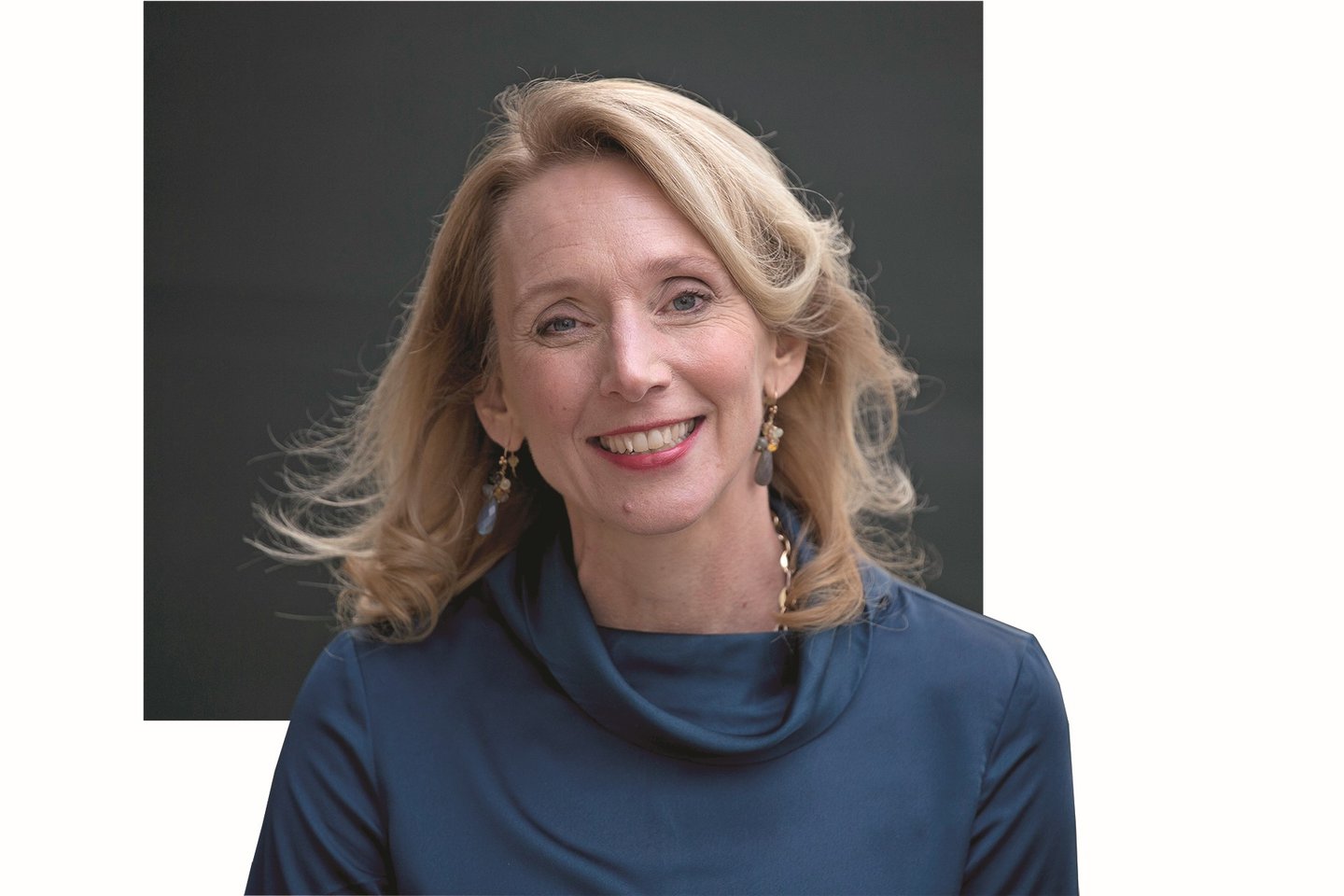Unilever Global President Named 2023 Top Women in Grocery Trailblazer
TWIG COMPLETE COVERAGE
Hanneke Faber is the global president of Unilever’s Nutrition Business Group, a $13 billion business present in more than 150 countries. It’s known for iconic global brands Knorr and Hellmann’s and emerging brands such as Maille and The Vegetarian Butcher, as well as Horlicks malt drinks in India, Bango soy sauce in Indonesia, and Calve peanut butter in the Netherlands. Prior to becoming Nutrition’s president, Faber was president of Unilever’s Foods & Refreshment Division. Under Faber’s leadership, the division’s growth accelerated significantly. During her tenure, Foods & Refreshment was named No. 1 in the World Benchmarking Alliance’s rating of 350 food and agriculture brands for responsible and sustainable business.
Faber joined Unilever in January 2018 as president, Unilever Europe. She has been a member of the Unilever leadership executive team since that time. Before joining Unilever, she was a member of the executive committee of global retailer Ahold Delhaize and held various international leadership roles at Procter & Gamble.
Progressive Grocer: Hanneke, you attended college in Texas on a full athletic diving scholarship! How did you ever decide to dive into the grocery and consumables industry?
Hanneke Faber: After university, I first “dove” into the world of consumer goods at Procter & Gamble (P&G), and I loved the industry from the moment I walked in the door. Like sports, consumer goods is fast-paced and competitive, and it takes teamwork. Like my sport, diving, winning in consumer goods requires a bit of risk-taking every now and again. And maybe most importantly, like in college, I loved my “teammates” and “coaches,” i.e., my colleagues and bosses. Life is too short not to spend it with great people!
PG: Can you talk about your experiences at Procter & Gamble and Ahold Delhaize?
HF: I worked across various beauty roles at P&G for over 20 years around the world, so beauty is where I really grew up. P&G is a wonderful “school” for business leaders, and I am grateful for the opportunity I had there to work in different markets in both Europe and the U.S. At Ahold Delhaize, I had the opportunity, among other things, to lead their e-commerce business. We grew it from less than $1 billion to more than $3 billion in four years, which was a pretty wild and fun ride. I enjoyed the speed of the grocery business, and the intense everyday focus on customer satisfaction.
PG: What do you remember about those first few days, the work and interacting with customers?
HF: At P&G, like in most consumer goods companies, I started my career with sales training. In my case, that meant a winter of selling Vicks Cough & Cold products to small stores in Holland from the back of my car. Dealing with independent drug store owners was a great lesson. You had to have your act together, listen carefully to what they needed, and deliver on it, or you’d be shown the door pretty quickly. I do have to admit that I’ve never been as happy about a cold and dreary winter, or about people catching colds, as that year!
PG: Consumer packaged goods was a male-dominated industry when your career began. Were there female role models that you looked up to early on? Talk about some of your early influences, who they were and what lessons you learned from them.
HF: I have been fortunate throughout my career to have great female role models. You cannot be what you cannot see — but I always had a few fantastic women to look up to. Susan Arnold, most recently the chair at Disney, and Gina Drosos, now the CEO of Signet Jewelers, are great examples of female leaders in whose organizations I had the pleasure of working. They showed that you can have superb results, a fantastic career, and lead a fulfilling life with a partner and children.
PG: Unilever is such an amazing company. What’s the most rewarding part of working there?
HF: At Unilever, our purpose is “To Make Sustainable Living Commonplace.” That’s what makes Unilever special. We expect our people to “Do well by doing good”: to deliver superior financial results by doing things that are better for people and the planet. In the Nutrition business, that means we are passionate about delivering brands and products that taste great and are healthier for our consumers and the planet. And when we do that well, we win!
Hellmann’s is a great example. It’s a superior mayonnaise, preferred for its taste and creaminess by consumers around the world. It’s also unique in that it comes in 100% recycled packaging, is made with cage-free eggs and runs a global campaign called Make Taste Not Waste. Add to that a nice dose of pop culture — think Super Bowl! — and you have a brand that has been growing by double digits for years.
PG: Unilever has set some impressive goals when it comes to transforming food systems. Can you talk about those goals?
HF: The global food system is strained. A billion people are hungry. Two billion people are overweight or obese. Almost one-third of greenhouse gases are emitted by the food industry, and yet we throw away one-third of the food we produce.
As one of the largest food manufacturers in the world, we have a responsibility to help shape a fairer, healthier, more sustainable food system. That is why I launched our Future Foods commitments in November 2020. It’s our plan to help people transition towards healthier diets and reduce the environmental impact of the food chain.
PG: What is being done to move the needle on gender diversity at Unilever at all levels to ensure the company has a strong pipeline of female talent?
HF: Back in 2010, when women accounted for just 38% of Unilever’s managers, Unilever set a public goal to achieve gender balance in managerial roles. We met that goal in 2019, and last year, 54% of managers across Unilever’s global business were women.
To deliver these results, target setting, senior management sponsorship, policies and networks have been critical. Unilever was brave in setting a public goal early on. We also have strong, flexible working policies for all genders, including a generous global paternity leave policy, and sponsor both an internal gender diversity network and external ones like Catalyst and LEAD.
PG: What do you think is the role of a leader? How would you describe your leadership style, and how was it developed?
HF: In our Nutrition Business Group, we like to describe our culture as one in which we are all “chefs.” Chefs in the culinary sense, but also chefs in the sense of being “chiefs,” or bosses. People who lead, make things happen, take fate in their own hands.
My role, as “the Chef of all Chefs,” is to inspire, set stretching targets, make choices and support the teams around the world. I’ve set an ambition for us to be a world-class force for good in food. We have made some very clear strategic choices on how to do that. To deliver, much of my day-to-day work takes me outside of our headquarters to listen to consumers in their kitchens, to partner with our retail and foodservice customers, and to work with our 17,000 chefs in our offices and factories around the world.
PG: Can you talk about how consumer behavior has changed in U.S. grocery in the past year?
HF: We see two big long-term-mega trends.
First, healthier living. People are ever more focused on making sure the food they and their families consume is healthier for them. We also see people are increasingly conscious about the impact of what they eat on the planet. Plant-based, local, low or no sugar and salt — all of these will remain important. At Unilever, we have market-leading commitments for a healthier portfolio.
Second, everything will be ever more digital. From omnichannel shopping to AI-generated recipes to robots waiting on restaurant tables, digital technology will continue to help make eating tastier, easier and healthier. Omni is one of the biggest trends in the U.S.
Closer in, the COVID “cooking renaissance” has endured to some extent. Many people rediscovered cooking at home during the pandemic, and although eating out is definitely back, we still see an elevated level of cooking at home versus pre-COVID. Our condiments and dressings portfolio is particularly well suited to this trend. Many people want to cook with fresh ingredients, and our taste-enhancing brands like Knorr and Hellmann’s help them do so.
PG: What’s next for grocery shopping? Can you elaborate on the trends affecting the CPG landscape (e-commerce, inflation, ESG, etc.)?
HF: First of all, let me say that food is a great place to be. The food market will continue to grow robustly, driven by global population growth and the trends I just described. Eating out will grow ahead of eating in, driven by urbanization. Fifty-five percent of people live in cities now, but that will rise to almost 70% by 2050, and that means more access to restaurants. A growing middle class, higher female participation in the workforce and more travel/tourism all drive eating out, too. At Unilever, we are excited about the potential of our Unilever Food Solutions (UFS) business, which already serves more than 1 million restaurants and chefs around the world. UFS’ chefmanship, solutions for foodservice professionals and digital go-to-market know-how are best in class in the industry.
Across the grocery and foodservice channels, food inflation may well continue to be a challenge. The availability and prices of the farm ingredients we depend on are directly linked to climate. As the world faces more droughts, floods and other extreme weather events, this will become more challenging. Unilever is committed to supporting farmers around the world with new regenerative practices that help make their soil healthier and more resilient. Our program supporting soybean farmers in Iowa across 65,000 hectares is a great example. We look forward to working closely with farmers, customers, suppliers, governments and NGOs around the world to expand our regenerative-agriculture footprint.
PG: If you had a daughter starting a job at Unilever today, what advice would you give her as she headed out the door to begin her first day?
HF: It’s funny you should ask. We have a 23-year-old son and two daughters, who are 21 and 18 — and one or two of them may just be starting out in consumer goods soon. My advice is to be curious, to work hard and aim to help solve the biggest challenge our industry faces: to continue to grow and feed the world while delivering a net-zero carbon footprint by 2050 and a 40% reduction by 2030. At a personal level, I would tell them to enjoy the present instead of worrying too much about what’s next in a career. Carpe Diem!





